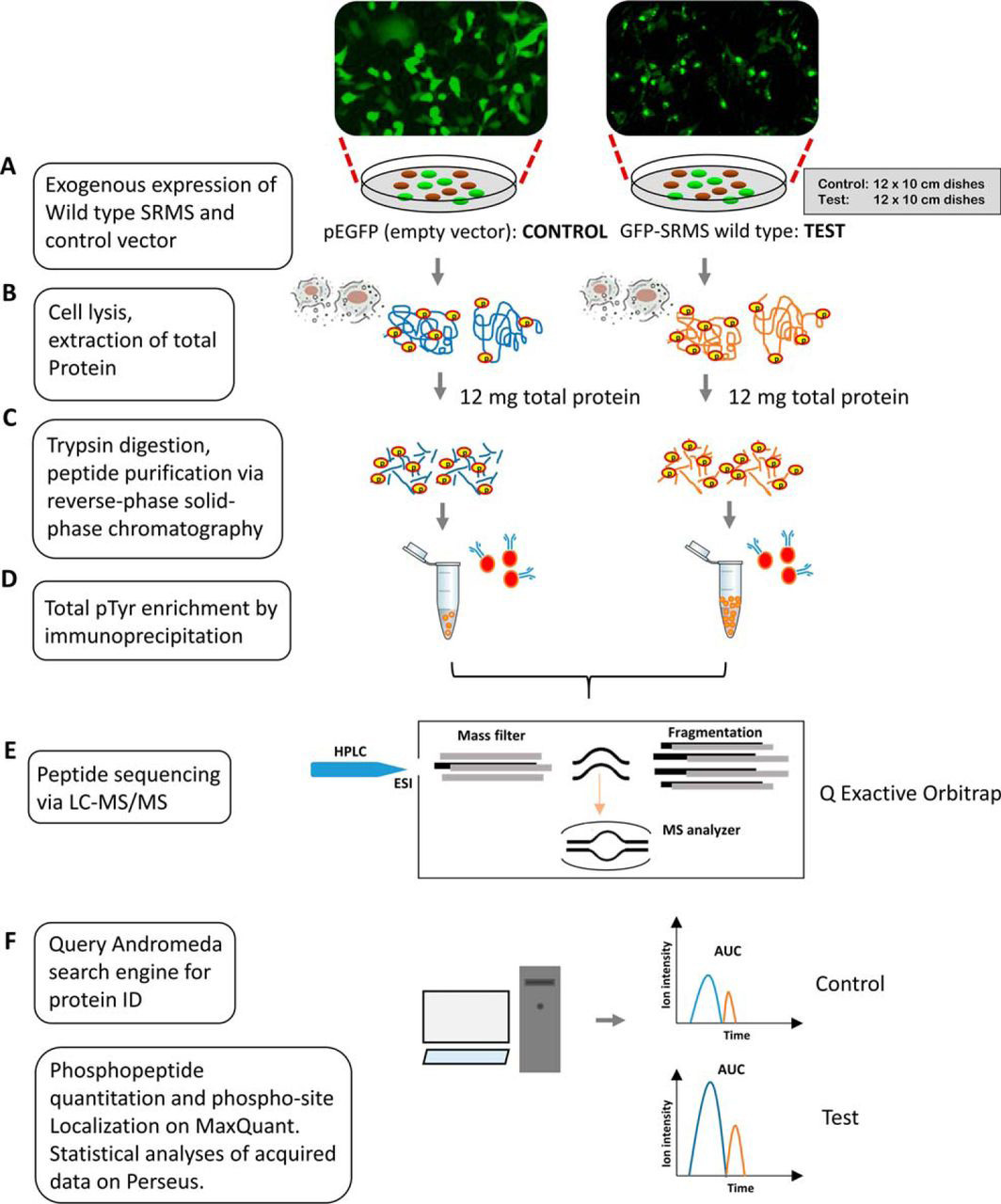Tyrosine Phosphoproteomics Service
Tyrosine Phosphoproteomics Service at MtoZ Biolabs is designed to systematically profile tyrosine phosphorylation events with high sensitivity and accuracy. By focusing on this rare but critical type of post-translational modification, our service provides researchers with precise site mapping, dynamic quantification, and pathway analysis to advance both discovery research and translational applications.
Overview
Tyrosine phosphorylation is a low-abundance yet highly influential post-translational modification, representing less than 1% of all phosphorylation events in cells. It is catalyzed by tyrosine kinases and reversed by phosphatases, regulating processes such as cell proliferation, immune signaling, apoptosis, and differentiation. Despite its scarcity, tyrosine phosphorylation functions as a central regulatory hub in pathways including RAS/MAPK, JAK/STAT, and immune receptor signaling. Aberrant tyrosine phosphorylation, often caused by hyperactive kinases or oncogenic fusion proteins, is strongly associated with cancer, immune disorders, and therapeutic resistance, making its study essential for drug discovery and precision medicine.
Services at MtoZ Biolabs
MtoZ Biolabs delivers Tyrosine Phosphoproteomics Service through a comprehensive workflow that combines selective enrichment strategies with advanced mass spectrometry, ensuring accuracy and reproducibility. Immunoaffinity precipitation (IAP) with anti-phosphotyrosine antibodies such as 4G10 or pY-100 is frequently employed to selectively capture pTyr-containing peptides, ensuring high specificity and sensitivity for this rare modification. Broader approaches including titanium dioxide (TiO₂) and immobilized metal affinity chromatography (IMAC), though primarily effective for serine/threonine phosphorylation, can be integrated alongside IAP to improve overall peptide recovery and phosphoproteome coverage. Following enrichment, peptides are analyzed using high-resolution Orbitrap instruments, which deliver accurate mass measurements and detailed MS/MS fragmentation for confident site identification. For quantitative studies, workflows such as TMT, DIA, or label-free methods enable global comparisons across conditions, while targeted PRM or SRM strategies support precise validation of phosphorylation events. Together, these methods allow researchers to gain deep and reproducible insights into tyrosine phosphorylation dynamics in both discovery and translational contexts.

Goel, R. K. et al. Mol. Cell. Proteomics. 2018.
Figure 1. Workflow of Tyrosine Phosphoproteomics
Why Choose MtoZ Biolabs?
✔ Specialized in pTyr Analysis: Immunoaffinity-based enrichment designed for rare tyrosine phosphorylation.
✔ Advanced Orbitrap MS Platforms: High sensitivity and resolution for confident detection.
✔ Comprehensive Data Analysis: Site identification, quantification, kinase activity prediction, and pathway annotation.
✔ Flexible Workflow Design: Tailored approaches to match different research objectives.
✔ Transparent Pricing: One-time charge model with no hidden fees.
Sample Submission Suggestions
MtoZ Biolabs accepts a wide range of biological materials for tyrosine phosphoproteomics:
Cells: Cultured cell lines or primary cells
Tissues: Fresh or frozen tumor and normal tissues
Biofluids: Serum, plasma, cerebrospinal fluid
Exosomes: Extracellular vesicles containing pTyr proteins
For detailed submission guidelines, please contact MtoZ Biolabs.
Applications
The Tyrosine Phosphoproteomics Service underpins a wide spectrum of research directions, with representative applications outlined below.
Cancer Biology: Profiling oncogenic kinase signaling and therapeutic resistance.
Drug Development: Identifying substrates of tyrosine kinases and evaluating inhibitor effects.
Immunology: Characterizing tyrosine phosphorylation events in TCR/BCR signaling.
Biomarker Discovery: Defining pTyr-based molecular signatures for diagnosis and prognosis.
Precision Medicine: Supporting patient stratification through tyrosine phosphorylation profiling.
Tyrosine Phosphoproteomics Service at MtoZ Biolabs enables accurate, sensitive, and reproducible profiling of tyrosine phosphorylation, providing critical insights into disease biology and drug development. Contact us today to accelerate your research with our service.
What Could Be Included in the Report?
1. Comprehensive Experimental Details
2. Materials, Instruments, and Methods
3. Total Ion Chromatogram & Quality Control Assessment
4. Data Analysis, Preprocessing, and Estimation
5. Bioinformatics Analysis
6. Raw Data Files







